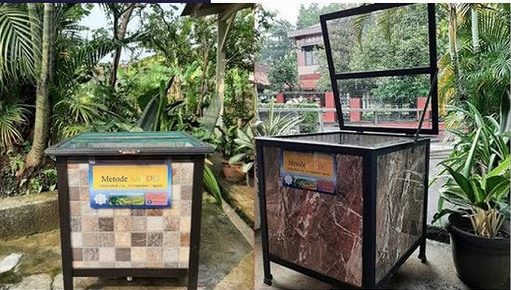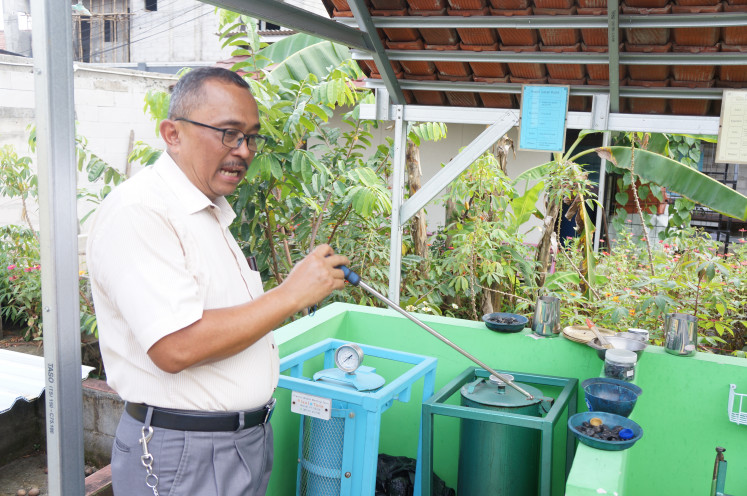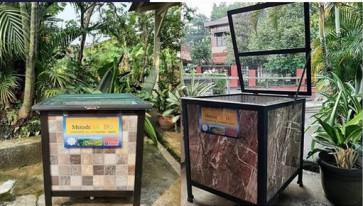Popular Reads
Top Results
Can't find what you're looking for?
View all search resultsPopular Reads
Top Results
Can't find what you're looking for?
View all search resultsBlack soldier fly larvae help turn trash into nutrient-rich compost
A neighborhood in Bogor applies the SABDO method, which uses bins as living ecosystems for black soldier flies. These flies break down organic waste within weeks, converting it into nutrient-rich compost.
Change text size
Gift Premium Articles
to Anyone
 SABDO method: Bins used as a living ecosystem for black soldier flies, which help break down organic waste, are pictured in this undated photo. Arief Sabdo Yuwono, a professor at the Bogor Agriculture University (IPB) in Bogor, West Java, has introduced a disposal method called "sebelas detik aja bio degradasi organik" (SABDO), which translates as “just 11 seconds for bio-organic degradation.“ (IPB University/-)
SABDO method: Bins used as a living ecosystem for black soldier flies, which help break down organic waste, are pictured in this undated photo. Arief Sabdo Yuwono, a professor at the Bogor Agriculture University (IPB) in Bogor, West Java, has introduced a disposal method called "sebelas detik aja bio degradasi organik" (SABDO), which translates as “just 11 seconds for bio-organic degradation.“ (IPB University/-)
I
n Indonesia, where millions of tonnes of trash are dumped in landfills daily, a professor has developed a method that allows households to transform organic waste into something valuable: compost, without the smell, mess or hassle.
According to the Environment Ministry, 21.4 million tonnes of household waste were generated in 2024, with 41.2 percent left unmanaged. Of this, over 39 percent was food waste, 11.3 percent paper and 19.5 percent plastic, highlighting the challenges of effective waste management.
Arief Sabdo Yuwono, an environmental science professor from the Bogor Agricultural University (IPB) in Bogor, West Java, has developed a method that can help solve some of the challenges in the country’s waste management.
The simple waste disposal method is called sebelas detik aja bio degradasi organic (SABDO), which translates as "just 11 seconds for bio-organic degradation."
The SABDO method uses a bin as a living ecosystem for black soldier flies, which can break down organic waste in weeks and convert it into nutrient-rich compost.
"You just open the bin, throw in the waste, and close it. It’s that simple, just takes a few seconds," Arief told The Jakarta Post, referring to a specifically built bin that he has made.
Valuable trash: Environmental science professor at the Bogor Agriculture University (IPB) in Bogor, West Java, Arief Sabdo Yuwono, explains how self-processed waste can become a source of income at his School of Waste Management, on Jan. 8, 2025. Arief consistently processes his own organic waste and sells recyclable materials to scavengers (JP/Nur Janti)


















